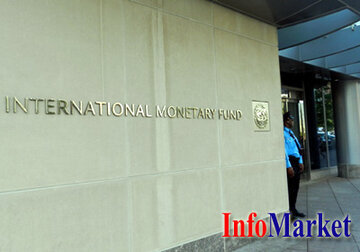
The IMF notes that Moldova's economic recovery is taking longer than expected and has lowered the forecast of its GDP growth for 2024 to 2.6%.
This was stated by the head of the International Monetary Fund Mission Clara Mira following the work of the Fund's experts in Moldova. According to the IMF report, the Fund's Mission held discussions with the Moldovan authorities from April 22 to May 3 in the context of the fifth review of Moldova's ECF/EFF program, financed by the IMF through the Extended Credit Facility (ECF) and the Extended Fund Facility (EFF), and the first review of the program financed by the IMF through the Resilience and Sustainability Facility (RSF). Following the Mission activity, Clara Mira said that the recovery of the Moldovan economy has been slower than expected as the effects and aftermath from the war in Ukraine continue. Real GDP grew by 0.7% in 2023, below the IMF's forecast of 2% at the time of the last review. This was primarily due to a weaker recovery in domestic demand, especially private consumption and investment. According to Clara Mira, the recovery of the Moldovan economy should continue in 2024 with a growth of 2.6%, which is again lower than previously forecasted. Risks include possible new energy shocks or a new wave of refugees, she said. Faster-than-expected growth in the number of trading partners, faster progress towards EU accession and accelerating structural reforms carry risks to growth. Budget 2024 strengthens social safety nets, further maintains energy security and supports growth-enhancing investment and reforms. "Given that inflation has been within the NBM's target range since November, the current monetary policy stance is appropriate. Exchange rate flexibility and maintaining sufficient foreign exchange buffers will be critical to overcome shocks. Monetary policy should remain focused on maintaining price stability," Clara Mira emphasized. According to her, the program with the Fund was well implemented by the Moldovan authorities and was generally on track, although with some delays in structural reforms. The authorities fulfilled all the quantitative performance criteria at the end of December. The end-December structural indicators on strengthening tax administration and completing the audit of state-owned enterprises were met. The Law on Climate Action was passed. However, agreed reforms to strengthen the institutional autonomy and governance of the NBM (December) and to establish an anti-corruption decision-making infrastructure, including a credible judicial selection process (March), are on hold, although work continues. "We would like to express gratitude to authorities for the constructive discussions. The IMF team will continue discussions in the context of the fifth ECF/EFF review and the first RSF review with a view to reaching a staff-level agreement in the near future. We reiterate our commitment to support Moldova," she emphasized. It should be noted that, based on the preliminary results of this Mission, a report will be prepared, which, subject to the management's approval, will be submitted to the IMF Executive Board for discussion and decision. As InfoMarket previously reported, the 40-month ECF/EFF program for Moldova was approved by the IMF in December 2021, and in May 2022 the total amount of lending was increased to about $783 million, of which about $459 million has already been transferred. In addition, the RSF program was approved in December 2023, with financing of about $170 million. Earlier, the IMF lowered Moldova's GDP growth forecast for 2024 by 1.7 p.p. - from 4.3% to 2.6%, and expects economic growth of 4.8% in 2025. This follows from the IMF's new April World Economic Outlook (WEO). Moldova's GDP in 2023, according to preliminary data, amounted to 300.42 billion lei, increasing by 0.7%, compared to 2022. // 03.05.2024 - InfoMarket.







